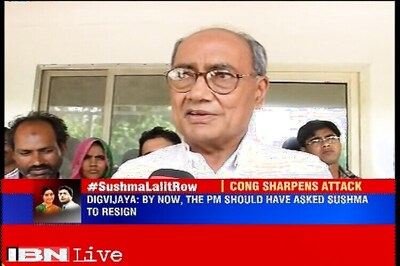
views
After finance minister Nirmala Sitharaman announced a slew of relief measure last week for economic revival, the Cabinet on Wednesday also made some key changes in India’s economic policy in order to make the country an attractive destination for foreign direct investment (FDI). Commerce and industry minister Piyush Goyal said the changes were meant to liberalise and simplify the FDI policy to provide ease of doing business in the country, bring larger FDI inflows and contribute to the growth of investment, income, and employment. Here is a list of the key decisions announced by the Cabinet on Wednesday:
1) In a bid to boost the manufacturing sector, 100% FDI has been approved through the automatic route in contract manufacturing. The existing policy provides 100% FDI under the automatic route in the manufacturing sector, but there was no specific provision for contract manufacturing in the policy.
2) FDI norms for single-brand retails firms (like Ikea, H&M among others) have been eased as the Cabinet relaxed the definition of the mandatory 30% domestic sourcing norm for these firms. Domestic procurement even for exports would now be included in the 30% local sourcing clause. The local sourcing requirement can be met as an average during the first five years and thereafter annually towards its India operations. The current cap of considering exports for only five years is also proposed to be removed.
3) Also, single-brand retail firms would now be permitted to open online stores before setting up brick-and-mortar shops. Currently, online sales by a single-brand retail player is allowed only after the opening of physical outlet. Online sales are expected to lead to the creation of jobs in logistics, digital payments, customer care, training, and product skilling.
4) The Cabinet approved 100% FDI under automatic route in coal mining and associated infrastructure, including processing, washing, and thrashing. Currently, 100% FDI under automatic route is allowed for coal and lignite mining for captive consumption by power projects, iron and steel and cement units only.
5) The Cabinet permitted 26% FDI investment for uploading/streaming of news and current affairs through digital media through the government approval route. Currently, 26% FDI is allowed through government approval route in the print media sector and 49% is permitted in broadcasting content services through the government approval route.
6) In a bid to provide relief to sugarcane farmers, the Cabinet has approved Rs 6,268 crore export subsidy for 6 million tonnes of sugar. Union Minister Prakash Javadekar said that a lump sum export subsidy of Rs 10,448 per tonne will be given to sugar mills in the 2019-20 marketing year (October-September) to encourage exports.
7) The Cabinet announced establishment of 75 new medical colleges by 2021-22 with an investment of Rs 24,375 crore. The proposed new medical colleges will add 15,700 MBBS seats in the country. There are currently 70,978 MBBS seats in 529 colleges in India.
8) To improve India’s disaster preparedness, the Cabinet also approved the establishment of an International Coalition for Disaster Resilient Infrastructure along with its supporting secretariat office in New Delhi. Prime Minister Narendra Modi will launch the CDRI during the UN Climate Summit in New York on 23 September.



















Comments
0 comment